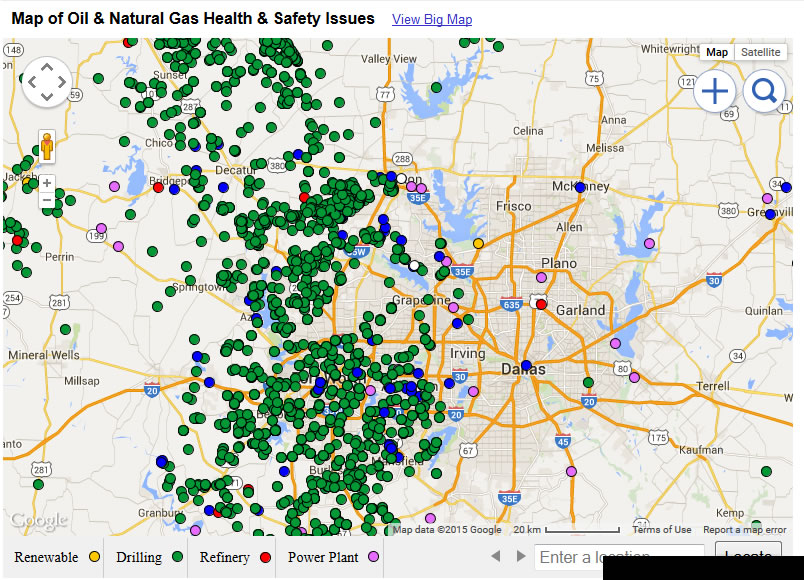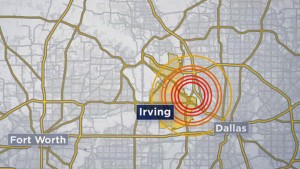Tuesday, July 14th, 2015 and is filed under Oil and Gas Current Events, Permian Basin Oil News
 Does fracking cause earthquakes? An SMU study links fracking and earthquakes, but is the study accurate? Some dispute the so-called fracking earthquakes.
Does fracking cause earthquakes? An SMU study links fracking and earthquakes, but is the study accurate? Some dispute the so-called fracking earthquakes.
Texas lawmakers approved a $4.5 million in 2015 to study a succession of earthquakes that rocked the Dallas Fort-Worth area at the beginning of that year. Purpose: to explore what—if any—connection the temblors have to oil and gas production. The region is home to the Barnett-Shale formation, a play rich in natural gas reserves.
Funds will be used to purchase monitoring instruments to study seismic activity around oil and gas wells. The move comes after state regulators held hearings in early June 2015 to probe any connection between oil and gas production and seismic activity in North Texas.
But is there a strong correlation between seismic activity and oil and gas production? A recent study released by Southern Methodist University in Dallas suggests there is. SMU researchers contend a recent cluster of small quakes in the Fort Worth suburb of Azle between November 2013 and January 2014 are linked to waste water injection wells. Fault lines act as pathways for pressure changes that can course to critically stressed areas, triggering the temblors, SMU researchers claim.
But representatives from Exxon and its gas subsidiary XTO Energy dispute these claims. They presented evidence to regulators that the quakes that struck one suburb originated far deeper that the depth of a nearby injection well. EnerVest, a firm that operates a well linked with the Azle quakes, showed evidence the quakes occurred as deep as 20,000 feet. That’s far deeper than the injection wells, which are drilled to depths of roughly 7,000 feet.
 The Irving quakes that struck in early January 2015 were centered just east of the site of the Dallas Cowboys former home field, Texas Stadium. The two quakes registered 3.5 and 3.6 on the Richter scale—large enough to be felt miles away.
The Irving quakes that struck in early January 2015 were centered just east of the site of the Dallas Cowboys former home field, Texas Stadium. The two quakes registered 3.5 and 3.6 on the Richter scale—large enough to be felt miles away.
Yet there was no drilling or multistage hydraulic fracturing activity anywhere near the quake zone at the time they struck. A single well was drilled in 2009 some two miles away from the stadium site, but it was shut down in 2012. The closest active well is some 20 miles away in Arlington, Texas. In addition, there were no wastewater injection wells anywhere near the quake site (the closest is ten miles away).
A more likely explanation, posits the Barnett Shale Energy Education Council, is movement along the ancient Balcones Fault zone, a series of fault lines stretching northeast from Southwest Texas.
“It’s hard to believe that a frack job that took place many years ago would be resulting in earthquakes today,” seismic researcher Michael Brudzinski said in an interview with Dallas public radio station KERA. Brudzinki suggested North Texas seismologists drop fracking as a credible quake suspect.
A Texas Railroad Commission database lists some 14,000-injection wells scattered across the 5,000-square mile Barnett Shale Play. Yet just 0.1 percent of these wells is correlated with any seismic activity. But that isn’t stopping anti-fracking groups from seizing the alleged linkage as an “opportunity to organize and win behind enemy lines.” Other anti-fracking activists are promoting the term “frackquake.”
But correlations do not equal causation. At around the same time earthquakes struck Irving, a swarm of quakes rocked Connecticut over a single week. There currently is no fracking activity in that state.
© Copyright 2024 Aresco, LP. All rights reserved. | Privacy Policy | Site by A3K Marketing. Admin Log in